Description
How to Calculate sheet metal hydraulic Press Brake Bending Machine Tonnage
Bending is carried out on a machine called press brake, which has a manual and automatic mode. For different plate material and plate thicknesses, there is a range of models (usually 40-2000 tons) available. The press brake machine for sale has upper die and lower die, the metal sheet is placed between the upper die and the lower die, and the metal sheet is bent by the downward pressure of the hydraulic ram. The bending angle is determined by the depth at which the sheet metal is pressed into the lower die. This depth is precisely controlled to achieve the desired bending. The hydraulic press brake machine is usually equipped with a set of standard molds. Special workpieces need to be customized with special molds. The selection of die material depends on the production quantity, sheet metal material, and bending degree.
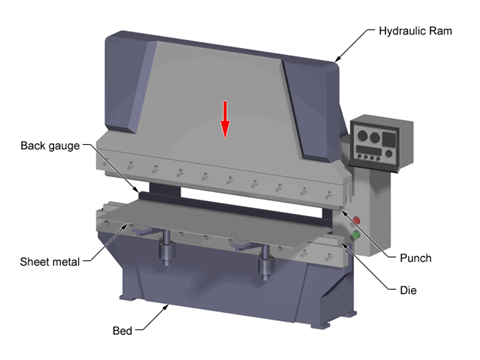
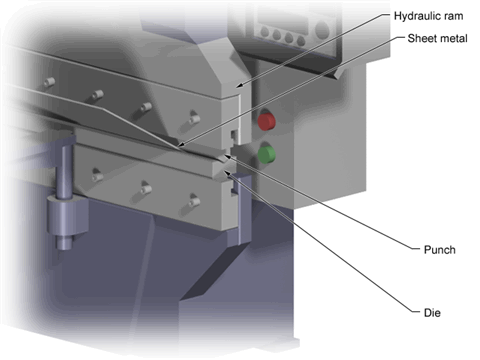
When you buy a press brake bending machine, the first problem you encounter is how to calculate the bending pressure, which determines how much tonnage you need to buy a sheet metal press brake. Usually, when people calculate hydraulic sheet bending machine tonnage, they can follow the following bending machine tonnage chart.
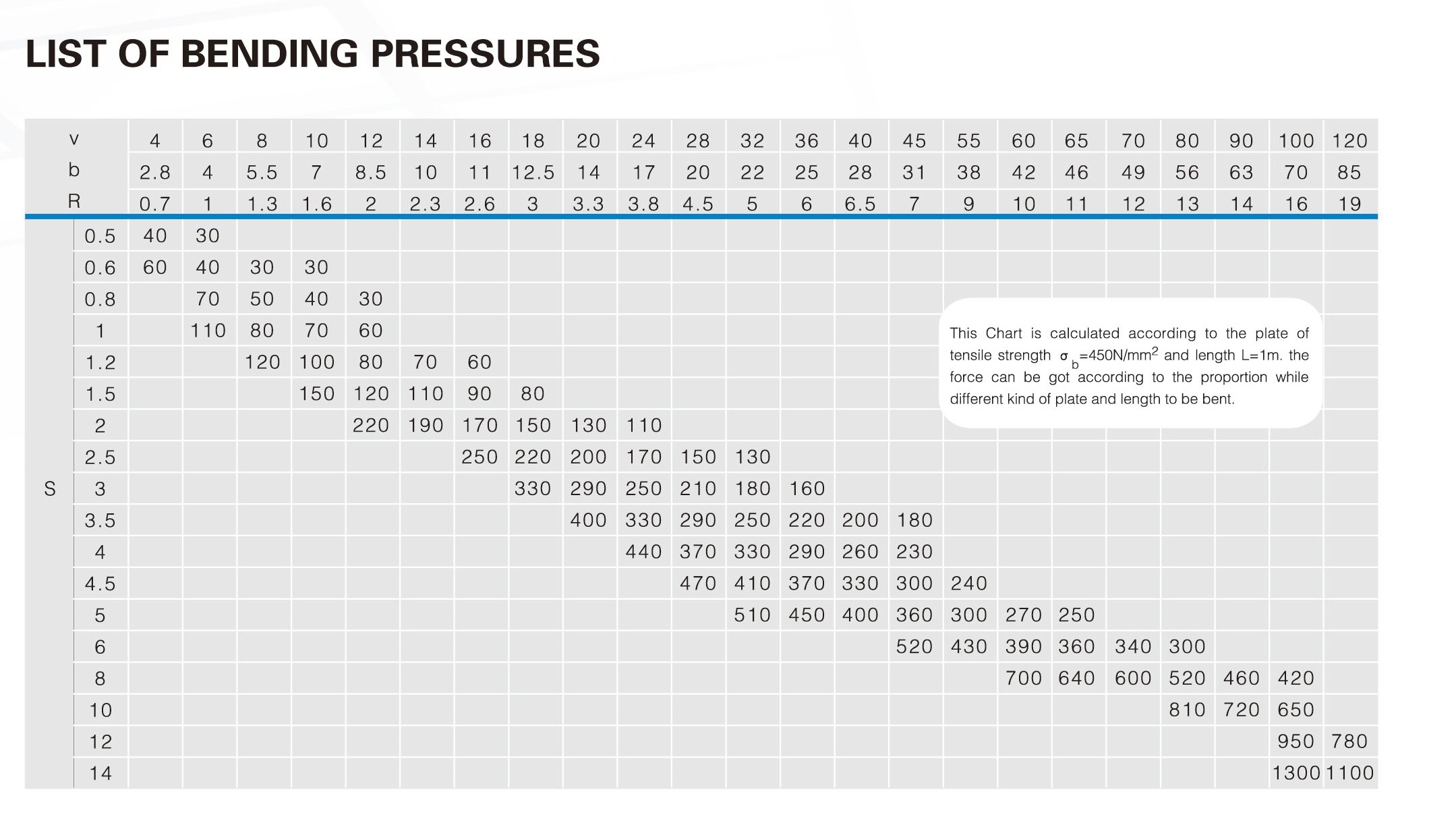
The value in the chart is the bending pressure when the length of the sheet is one meter:
Example: S=3mm L=1000mm V=24mm, Check the table P=250KN. This chart is calculated according to the plate of tensile strength and length L=1m. The force can be got according to the proportion while different kinds of plat and length to be bend. When bending other materials, the bending pressure is the product of the data in the table and the following coefficient.
Bronze (soft): 0.5; Stainless steel: 2; aluminum (soft): 0.5; chrome-molybdenum steel: 2.
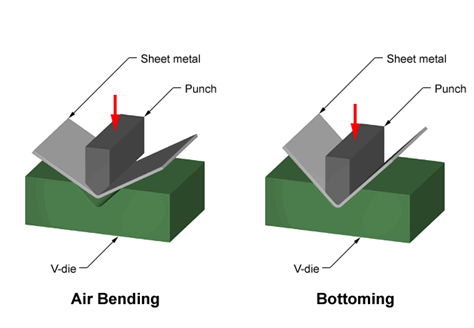
The force required for bending a thin metal plate is calculated by V-bending method, that is, the thin plate is pressed into the V-shaped die with a V-shaped punch. The bending force can be calculated by sheet thickness, die opening, bending length, and ultimate tensile strength of the material. The die ratio can be entered to calculate the die opening, usually 6 to 12 times of the sheet thickness. Generally, when the thickness is 0-3mm, we use 6 times the sheet thickness. When the thickness is 3-10mm, we use 8 times the sheet thickness. When the thickness is more than 10mm, we use 12 times of the sheet thickness. Then you can use the calculated tonnage to select a suitable sheet metal bending machine.
Approximate calculation formula of bending pressure:![]() ,
,
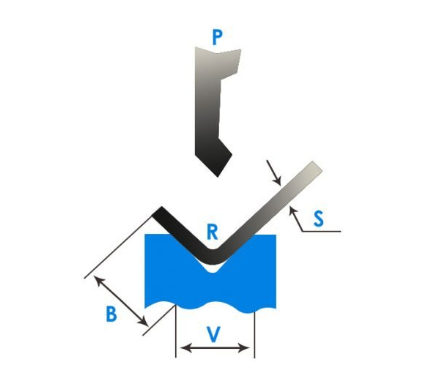
P: Bending force (KN)
S: The thickness of the plate(mm)
L: The width of the plate(m)
V: V-width of the bottom die(mm) V is 6-10 times of the thickness of the plate.
Above all, when you calculate the press brake tonnage, you will have two ways: one is to check the press brake tonnage chart and the other is to use the formula.
For example, your plate is S=3mm L=3m, so how much ton you need?
First, we check the press brake tonnage chart, when S=3mm L=1m V=24mm P=250KN.
So, if L=3m, total tonnage is 250KNx3m=750KN=75Ton.
Then we try the Formula, =73Ton. The result is similar to the value we get from the chart. If the plate is stainless steel, the total tonnage is 75Ton x2=150Ton.
ZYMT is the China top 5 press brake manufacturers, providing professional press brake bending machine knowledge and high quality sheet metal bending machine for sale. If you have any needs, contact us!





